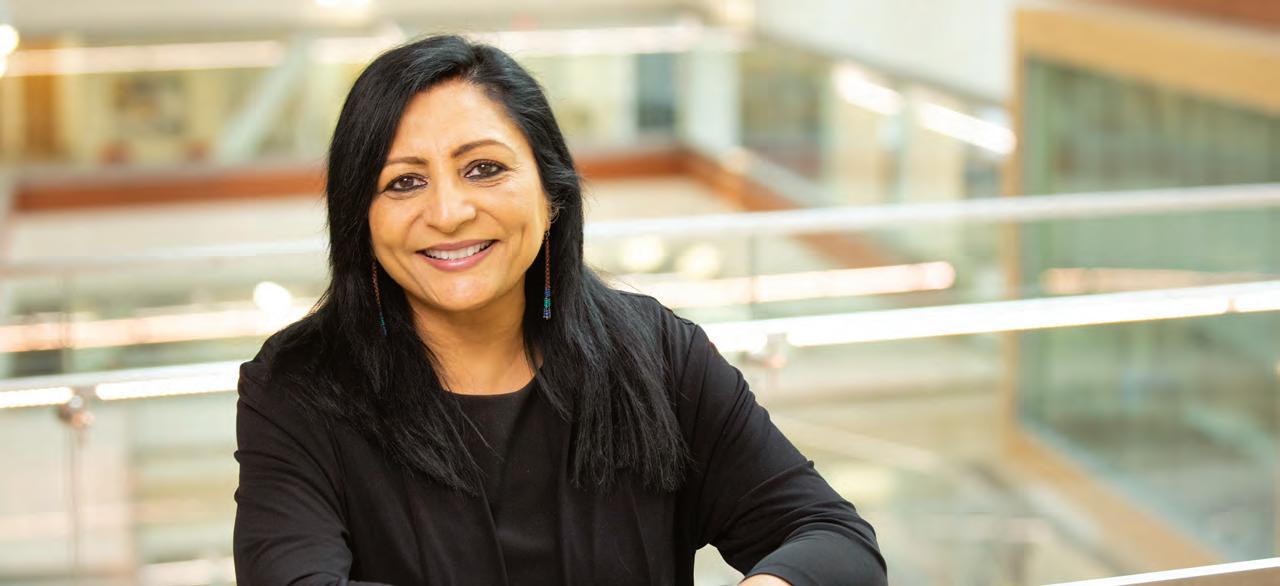Photo by Sandra Kicman
Sourav Sengupta, MD, MPH, lecturing.
ESSAY CONFRONTS BURNOUT AND STRESS AMONG PHYSICIANS RESONATES ON A NATIONAL SCALE
A
n essay by Sourav Sengupta, MD, MPH, assistant professor of psychiatry and pediatrics, detailing how he worked through issues of stress with the help of a therapist, is resonating on a national scale. Last March, JAMA Network published online his essay, “Rebuilding More of Me.” Sengupta wasn’t sure how the essay would be received, but in the weeks following its publication, he received personal email messages from dozens of physicians around the U.S. who reached out to share perspectives and their experiences. Altmetric (a citation-impact measurement) rated the essay in the top 5 percent of publications. In less than a month after publication, it had been viewed more than 6,500 times and downloaded more than 500 times. Sengupta received emails from physicians at every career stage, telling him it was a relief to know that others have also gone through this kind of stress and have succeeded.
14
WINTER 2020
UB MEDICINE
BY ELLEN GOLDBAUM
Difficulty in finding help It’s no secret that physicians have stressful jobs. Figuring out how to mitigate and deal with that stress can be a key part of a successful medical career. But while individual physicians seek and find help for their mental health issues privately, the prevailing public perception among physicians is that it just isn’t done. A few years ago, Sengupta, who also treats patients, had reached a point where he knew that escalating professional and personal demands were impacting his effectiveness. His essay describes the barriers he encountered in trying to access the help he needed. “I am an attending physician in the field from which I need support,” he writes. “Many of the best clinicians and treatment settings are not options. I know them too well.” Once he found a psychotherapist he could work with confidentially — who wasn’t a colleague — he began to open up. Sengupta writes: “[The therapist’s] willingness to acknowledge that clinical work is stressful and can become toxic establishes a life raft upon which I can hoist myself, build new strategies, and shape a different perspective.”







